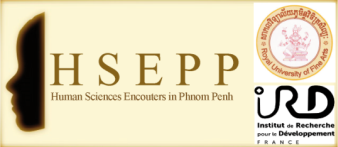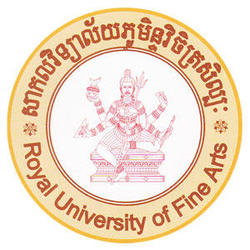Project initiators and partners
Initiators
UMI 233 trans VIH MI/INSERM U 1175
Université Royale des Beaux Arts Phnom Penh
Partners
http://sites.sas.upenn.edu/tlc/
logo tlcAgence Universitaire de la Francophonie - Bureau Asie Pacifique
HSEPP support the Manusastra Project
Why do some midwives and gynecologists still systematically perform episiotomy during child delivery in Phnom Penh? By Clémence Schantz
Abstract
First documented in 1741, the practice of episiotomy substantially increased worldwide during the 20th century. Research findings show that episiotomy is not effective in reducing severe perineal trauma and may be harmful, however. Using a combination of methodological approaches, I conducted a study in 2013–14 on why obstetricians and midwives still perform routine episiotomies in a large maternity hospital in Phnom Penh?
I studied the extent of the practice based on a retrospective analysis of the delivery notes of a random sample of 365 women who went to labor, as well as 22 in-depth interviews with obstetricians, midwives and women who recently gave birth. Out of the 365 women, 345 (94.5%, 95% CI: 91.7–96.6) had received an episiotomy. Univariate analysis showed that nulliparous women underwent episiotomy more frequently than multiparous women (OR 7.1, 95% CI 2.0–24.7). According to midwives and obstetricians, the persistence of such practice finds its justification in: i) the fear of perineal tears; ii) the strong belief that Asian women have a shorter and harder perineum than others; iii) the lack of time in overcrowded delivery rooms; iv) and the belief that Cambodian women would maintain a ‘tighter and prettier vagina’.
Drawing on two case studies from Vietnam and Hong Kong, I will demonstrate how restrictive episiotomy can reduce the episiotomy rate without compromising perineal safety even in Asian countries. This lecture will give us the opportunity to discuss maternal health and delivery conditions including the practice of the caesarean section in today’s Phnom Penh, Cambodia’s capital city.
Bio data :
Clémence Schantz is a French certified midwife and a PhD candidate at the University of Paris Descartes (CEPED UMR 196: Paris Descartes University, IRD). She has been conducting a socio-demographic research on current bio-medical practices during child delivery in Phnom Penh since 2013.








